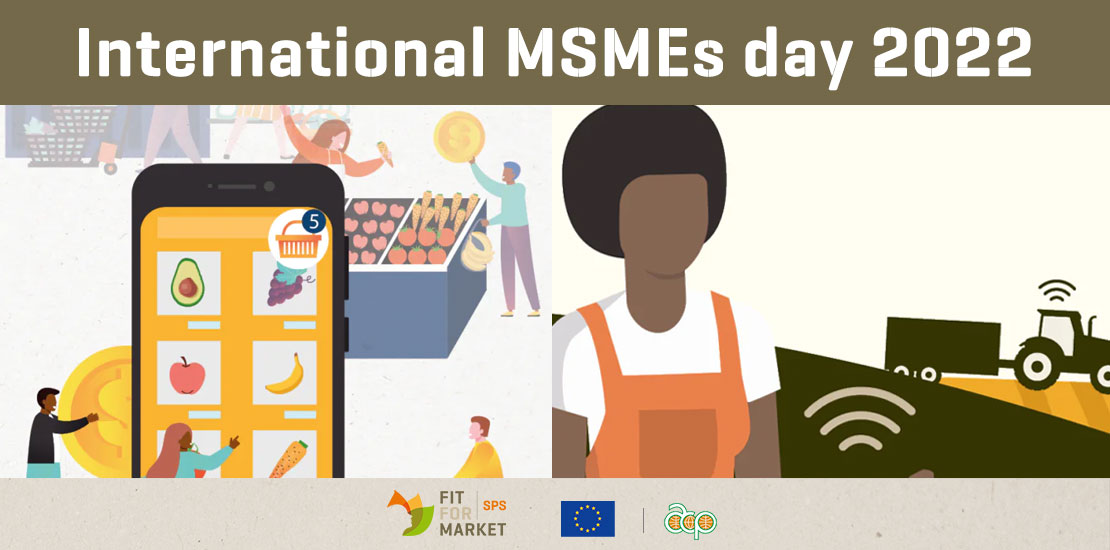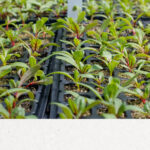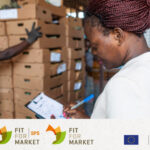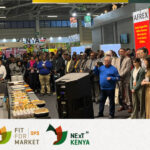Celebrate resilient African and Caribbean MSMEs supporting sustainability, growth and inclusion
- 27/06/2022
- Posted by: Gaetan Dermien
- Category: Africa, Angola, Benin, Burkina Faso, Burundi, Cameroon, Caribbean, Côte d'Ivoire, Dominican Republic, Ethiopia, Gambia, Guinea, Madagascar, Mali, Mauritius, Nigeria, Rwanda, Senegal, Sierra Leone, Togo, Uganda, Zimbabwe

With respectively less than 10, 50 and 250 employees, Micro, Small and Medium-sized Enterprises (MSMEs) are the backbone of most economies. They account worldwide for over 70% of all businesses and for more than 50% of jobs,1 especially for women and youth. MSMEs work with millions of family farms and contribute to securing food safety and security, providing nutrition to local consumers and communities, as well as promoting innovation and creativity towards sustainable food systems.
MSMEs are highly sensitive to external shocks, especially to COVID-19 and climate change. The COVID-19 effects aggravated existing challenges in the agriculture and agrifood business sector with an increase in unemployment and income reductions, closure of businesses, especially for MSMEs and supply chain disruptions. Moreover, the struggle to combat global environmental degradation and the progress in including socioeconomically marginalised communities in global value chains are both fundamentally dependent on MSMEs.2
Despite their challenges, COVID-19 and climate change are an opportunity for a paradigm shift in the way people produce and consume food, and creates new opportunities for businesses. Health and safety concerns, transparency in the chain, and closer relations with producers have become a strong feature in many markets. The pandemic led the private sector to seize business opportunities for online food ordering and delivery systems, as well as digital payments. Promoting local sourcing and supporting the local value chain actors are also essential and can be achieved in rebuilding more sustainable food systems.
To adapt to climate change, MSMEs develop innovation across the value chains such as recyclability and compostability; promoting regenerative agricultural practices; improving sustainable soil and water management; designing food products and supply chains to eliminate waste and bring production closer to consumption; transforming food by-products into new products, biomaterials, and agriculture and aquaculture inputs to return nutrients to the soil; developing approaches to minimize food losses.3
COLEACP supports entrepreneurship development and business growth in Africa, the Caribbean and the Pacific (ACP) regions. 38 African and 18 Caribbean MSMEs showed their resilience and shared their best practices, innovations and technologies to support others to embrace the unprecedented opportunities offered by local, regional and export markets during the PAFO-COLEACP Innovations Series and the IICA-COLEACP Caribbean Agrifood Business Series. Celebrate with us these resilient African and Caribbean MSMEs that support sustainability, growth and inclusion, and (re-)discover them by clicking in the links below !
| Innovations Series | Caribbean Agrifood Business Series |
On Wednesday 6 July 2022, 12:00-14:00 GMT, inspiring MSMEs and entrepreneurs will share their experience in exporting to the EU markets during the 10th Innovations Session which will be held online (registration).
1 https://www.un.org/en/observances/micro-small-medium-businesses-day
2 SEED (2021): Journeys to Scale: An Evidence-based Framework and Comparative Analysis of Eco-Inclusive SMEs.
3 Ellen MacArthur Foundation (2020), Financing the circular economy Capturing the opportunity.





